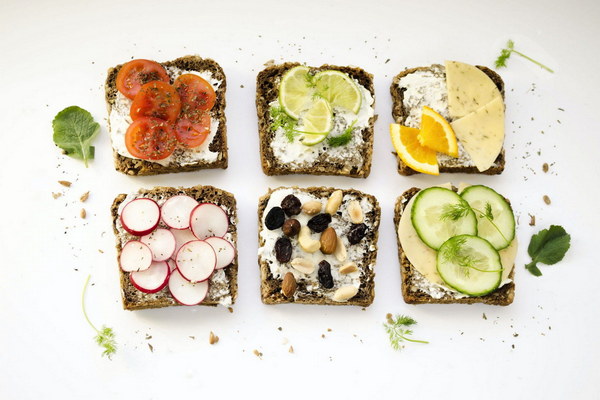Nurturing Your SevenMonthOlds Spleen and Stomach A Guide for Healthy Digestion
Introducing solid foods into your seven-month-old's diet is an exciting milestone, but it also comes with the responsibility of ensuring their digestive system remains healthy. The spleen and stomach, known in traditional Chinese medicine as the spleen-pancreas, play a crucial role in digesting and absorbing nutrients. Here's a comprehensive guide on how to nurture your seven-month-old's spleen and stomach for optimal digestion and growth.
Understanding the Spleen and Stomach in Infants
The spleen-pancreas in infants is still developing, making it more susceptible to imbalances. A healthy spleen-pancreas is essential for the following:
- Proper nutrient absorption
- Strong immune system
- Good sleep patterns
- Proper growth and development
Introduction of Solid Foods

1. Start Slowly: Begin with single-ingredient, iron-fortified baby cereals like rice or oatmeal, mixed with breast milk or formula. This allows your baby's digestive system to adjust to the new textures and nutrients.
2. Single Ingredients at First: Introduce one new food at a time, waiting at least three to five days before introducing the next. This helps identify any food allergies or intolerances.
3. Soft Texture: Ensure that the food is soft and easily mashed or pureed to minimize the risk of choking.
Feeding Schedule and Quantity
1. Regular Feeding Times: Maintain a consistent feeding schedule to help regulate your baby's appetite and digestion. Aim for three to four feedings a day, including breast milk or formula.
2. Small, Frequent Meals: Offer small, frequent meals to avoid overloading the digestive system. This also helps in the gradual transition from breast milk to solid foods.
3. Listen to Your Baby: Pay attention to your baby's cues of hunger and fullness. They may be ready to move on to more solid foods if they show interest, such as reaching for food or becoming fussy at feedings.
Nutrient-Rich Foods
1. Iron-Rich Foods: Introduce iron-rich foods like iron-fortified cereals, pureed meats, and well-cooked pureed spinach or kale to support the development of hemoglobin and to prevent iron deficiency anemia.
2. Protein: Offer protein sources such as pureed chicken, turkey, beef, or tofu to support muscle development and growth.
3. Fruits and Vegetables: Introduce a variety of fruits and vegetables, ensuring they are pureed or mashed to the right consistency. These provide essential vitamins, minerals, and fiber.
4. Dairy: Introduce dairy products like yogurt or cheese once your baby has shown no reaction to them. These provide calcium and vitamin D.
Cooking and Preparation
1. Steam or Boil: Steam or boil vegetables to preserve their nutrients and make them easier to digest.
2. Avoid Salt and Sugar: Do not add salt, sugar, or spices to your baby's food. These can be hard on their developing digestive system.
3. Keep Hydrated: Continue to offer breast milk or formula as your baby transitions to solid foods. Hydration is essential for proper digestion.
Common Digestive Issues and How to Address Them
1. Gas and Colic: If your baby is experiencing gas or colic, try burping them frequently during and after feedings. You can also try gentle tummy massages or using a baby swing to help relieve discomfort.
2. Diarrhea or Constipation: If your baby experiences diarrhea or constipation, adjust the consistency of their food and the types of foods they are eating. Consult with a pediatrician if the issue persists.
3. Food Allergies: If you suspect a food allergy, discontinue the offending food and consult with a pediatrician or allergist.
By following these guidelines, you can help nurture your seven-month-old's spleen and stomach, ensuring they receive the necessary nutrients for healthy growth and development. Remember, each baby is unique, so adjust the feeding plan according to your child's preferences and needs.









